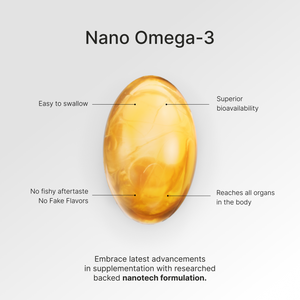Have you ever wondered why you can remember your best friend's birthday but sometimes forget what you had for breakfast? Memory is like your brain's filing cabinet - it stores information in different ways for different purposes. In this article, we’re going to explore how memory works and a few ways to keep it sharp.
What Is Memory?
Memory is your brain's remarkable information processing system. Like a sophisticated library, it doesn't just store information - it catalogs, organizes, and retrieves it in multiple ways. Think of memory as your personal time machine that lets you revisit past experiences, apply learned skills, and build new knowledge.
Your brain processes memories through special cells called neurons that form intricate networks. When you experience something, these neurons fire electrical signals and create connections. The more you recall or use certain information, the stronger these connections become - like wearing a path through grass by walking it repeatedly.
Memory works in fascinating layers. In just one second, your brain can:
- Record sensory impressions from all five senses
- Filter out unimportant details
- Tag important information for short-term storage
- Begin converting significant memories into long-term storage
- Access stored memories to help understand new experiences
Unlike a computer's straightforward file system, your brain interweaves memories with emotions, senses, and existing knowledge. A single memory might connect to hundreds of others. For example, remembering your grandmother's cookies might trigger memories of her kitchen, the smell of baking, special occasions, and cooking lessons she gave you.
Scientists have discovered that memories aren't stored in just one brain area. Instead, different aspects of a memory - like sights, sounds, emotions, and facts - are stored across various brain regions. When you remember something, your brain reconstructs these pieces into a complete memory, like assembling a puzzle.
Types of Memory
Your brain has three main types of memory storage:
Sensory Memory: Think of sensory memory as your brain's instant camera. It captures everything you see, hear, smell, taste, and touch for a split second. Most of this information quickly fades unless your brain decides it's important enough to keep.
Short-term Memory: This is like your brain's sticky note pad. It holds information you need right now, like remembering a phone number long enough to dial it. Short-term memory typically lasts about 20-30 seconds and can hold around 7 pieces of information at once.
Long-term Memory: This is your brain's permanent storage system. It contains everything from your first day of school to how to ride a bike. Long-term memories can last a lifetime and include:
- Facts and knowledge (semantic memory)
- Personal experiences (episodic memory)
- Skills and habits (procedural memory)
Factors That Affect Memory
Many things can influence how well you remember, so we’ll touch on a few important ones today. If you’re having issues with memory, first take a look at each of these areas to determine if you’re meeting the needs of your brain.
Sleep
Getting enough quality sleep helps your brain process and store memories. Think of sleep as your brain's filing time. It’s generally recommended to get 7-8 hours of restful sleep each night.
Exercise
Physical activity increases blood flow to your brain, which helps keep memory sharp. For brain health, it’s recommended to get 150 minutes per week of moderate aerobic exercise (think walking or biking) or 75 minutes of vigorous activity (running). Weight training is also important a few days per week. The most important factor in all of this is consistency.
Nutrition
Your brain needs good fuel to work well. Eating a balanced diet with plenty of fruits, vegetables, and healthy fats helps support memory function by giving the brain all of the antioxidants and nutrients it needs to function properly.
Stress
Too much stress can make it harder to form and recall memories. When stress hormones like cortisol flood your brain, they can interfere with the neurons in your hippocampus - the brain's memory center. This is why you might have trouble remembering things during a stressful test or presentation, even if you studied well. However, brief periods of mild stress can actually enhance memory formation, similar to how a little pressure helps you focus better.

6 Tips for Supporting Memory
Here are some natural ways to help your memory work its best:
-
Get Enough Sleep
Quality sleep is essential for memory consolidation. During deep sleep, your brain processes and stores memories from the day, much like a librarian organizing books. Aim for 7-8 hours of uninterrupted sleep nightly. Create a relaxing bedtime routine, maintain consistent sleep hours, and ensure your bedroom is dark, quiet, and cool.
-
Stay Physically Active
Regular exercise boosts memory through increased blood flow and oxygen to the brain. The recommended 150 minutes of moderate activity or 75 minutes of vigorous activity weekly can be broken into manageable chunks. Activities like walking, swimming, or dancing are excellent choices. Additionally, strength training 2-3 times per week supports overall brain health.
-
Eat a Healthy Diet
Your brain requires specific nutrients to function optimally. Focus on colorful fruits and vegetables rich in antioxidants (pomegranates, berries, leafy greens). Healthy fats from sources like avocados, nuts, and fish are also important, and adequate hydration is necessary. We recommend drinking half your body weight in ounces of water daily, so if you weigh 150 pounds, that means you’ll drink 75 ounces throughout the day.
-
Practice Mindfulness or Relaxation
While some stress can enhance memory formation, chronic stress impairs it. Use regular meditation or prayer sessions, deep breathing exercises and time in nature to accomplish this. Also, give yourself mental breaks throughout your day to rest.
-
Stay Mentally Active
Like muscles, your brain needs regular exercise. You could try brain games and puzzles, and reading something challenging can also be beneficial. Learning new things is a great way to enhance your brain function. Also, don’t forget about social interaction and meaningful conversations.
-
Use Memory Techniques
Enhance your memory with the following proven methods:
- Chunking: Break information into smaller, manageable pieces
- Visualization: Create mental pictures of what you need to remember
- Mnemonics: Use acronyms or rhymes
- Association: Connect new information to existing knowledge
- Active recall: Test yourself on information regularly
The Amazing Power of Memory
Your memory is one of your brain's most incredible features. It helps you learn new things, remember important information, and grow as a person. By understanding how memory works, you can better appreciate this amazing ability and take steps to support it naturally.
Remember, everyone's memory works differently, and that's perfectly normal. Some people are great at remembering faces, while others excel at remembering facts or songs. The key is understanding your own memory strengths and working with them.
Medical Disclaimer
The information provided on this website is for educational purposes only and is not intended as medical advice. This blog or the writer is not a licensed healthcare professional, and the content should not be used as a substitute for professional medical diagnosis, treatment, or advice. Always consult with your physician or other qualified healthcare provider before starting any new treatment or making any changes to your healthcare routine.







